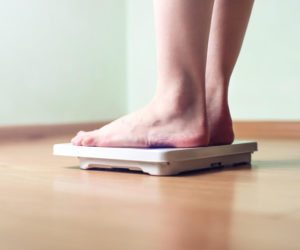Avoiding Sobriety Weight Gain: 6 Tips

It is easy to think that once you stop using drugs, all of your problems are in the past, but addiction recovery has many facets. For those people who have gone through addiction treatment, they know that addiction is a condition that they will be dealing with for many years to come. One of the issues that recovering addicts face after treatment is sobriety weight gain. Studies suggest that as many as 65 percent of people in recovery gain weight, making it very common.
In this article, we will look at why gaining weight after drug use is common and tips to help prevent excessive weight gain.
What Causes Sobriety Weight Gain?
During the period of substance abuse, a person’s metabolism can be affected. Many drugs also suppress a person’s appetite causing them to lose weight as they don’t eat for days at a time. For example, people addicted to opioids often have constipation problems that can lead to poor nutrition. In these cases, the addict is often drawn to high fat and carb diets because of their levels of leptin – a chemical that controls metabolism and appetite – which is depleted during their addiction, as is the case in cocaine addiction which reduces the levels of leptin. Once the abuse stops, the person continues to eat the same diet even though their levels of leptin are returning to normal resulting in weight gain.
Foods high in sugar, fat and salt can stimulate the reward centers of the brain. Recovering addicts may overeat as a way to stimulate their reward centers, much the same way as the drug abuse affected them. The overeating of food replaces the abuse of drugs in this way.
Low dopamine levels have also been linked to poor impulse control, which could explain some of the overeating habits that recovering addicts have. Stress eating is another cause of sobriety weight gain when there is a lack of effective tools to deal with the stress. Sugar can also cause stimulate your cravings according to The American Journal of Clinical Nutrition.
Tip to Prevent Sobriety Weight Gain
Weight gain after opiate addiction or other drugs can be rectified by following a few helpful tips. After all, gaining weight after drug use is not something that is guaranteed. Since you are creating a new lifestyle for yourself after stopping drug abuse, it is important to fall into the healthy patterns as early as possible, but even if there is weight gain after opiate addiction, you can still lose the weight.
The tips are as follows:
- Consistency – Eating three meals a day at roughly the same time can help to establish a healthy rhythm for your body. It can also help to make the release of dopamine and serotonin from eating food more regular and consistent throughout the day.
- Eat your greens – Eating just fatty, sugary foods is not healthy. Try to add a good mix of fruits and vegetables to your meals.
- Get enough sleep – Sleeping and waking up at the same time every day can further help the healthy pattern you want in your life. It can help to stabilize the times that you eat too.
- Exercise – Not only can exercise help to stave off depression through the release of “feel-good” chemicals, but it can help you to lose weight. Get into an exercise routine and stick to it!
- Join a support group – Joining a support group can be especially helpful at relieving built up stress – stress that can cause you to eat excessively.
- See a counselor – As with a support group, seeing your therapist or counselor can help you to deal with the stresses in your life and help you to avoid turning to excessive eating to cope.
With these tips, you can maintain your weight during recovery. For more information on treatment and recovery, call the White Sands Treatment Centers at 877.855.3470.
If you or a loved one needs help with abuse and/or treatment, please call the WhiteSands Treatment at (877) 855-3470. Our addiction specialists can assess your recovery needs and help you get the addiction treatment that provides the best chance for your long-term recovery.
